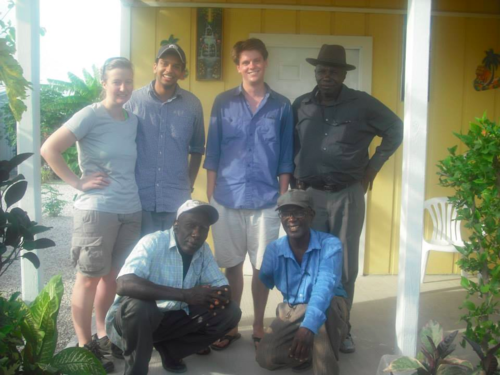Microsolar Charging Stations in Haiti

In June 2013, SIPS funded Tommy Larson (SFS ’14), Alissa Orlando (SFS ’14), Sarah Mock (SFS ’15), and Naman Trivedi (SFS ’16) to travel to Port au Prince, Haiti to lease and install a revenue-generating solar charging station for a Haitian entrepreneur.
The team used SIPS capital to purchase the solar-charging station and necessary components. With this innovative and achievable model, Naman was able to travel back to Fonds Parisien (about 20 miles outside of Port au Prince) to build upon the single charging station model.
The goal behind this social innovation model of leasing out solar charging stations is twofold: first, as in many developing countries, cell phones and cellular service is widespread in Haiti. Even those in poverty find it economical to have cell phones – they offer critical services that can improve lives, from mobile banking to healthcare. With the potential for mobile phones to make a huge impact on the delivery of critical services, we saw our idea as a medium to increase access to critical technology. Second, there are many communities in Haiti that are neglected by the government’s energy ministry and have no power at all. The solar charging station is an “off-grid” solution – it uses a solar panel to charge cell phones (or other appliances)without the need for electricity from the grid.
The main impact of their project is to help set up a a sustainable business model for a new entrepreneur. Enersa, a local Haitian solar manufacturer, built the team’s solar charging station. The team then leased the system out to an entrepreneur – Jean Pierre – that has paid back a certain percentage of the profit every month for one year, to pay off the cost of the system (about $1500). The entrepreneur would be making profit during that year, and after the system was paid off, the returns from the system would be theirs for pure profit.
In the future, the team hopes to continue the model in a new slum Cité Soliel, and others.
